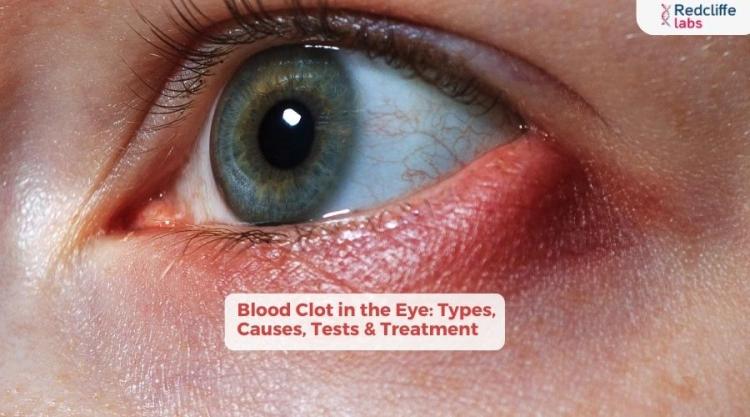Understanding High C-Reactive Protein Levels and Their Impact on Your Health

Medically Reviewed By
Dr Divya Rohra
Written By Shivangi Prajapati
on May 4, 2023
Last Edit Made By Shivangi Prajapati
on Jan 11, 2025

Do you know that when C-reactive protein (CRP) appears high, it’s the first significant sign of inflammation in your body? Now, you must think, "What defines a "high" level in one’s body? You don’t have to scratch your head; whenever the CRP is equal to or more than 2 milligrams per liter, it is marked as dangerous as it puts you at risk of one of the most severe health complications; a heart attack.
Not only that, in addition to being associated with coronary artery disease (CAD), CRP is also connected with health issues arising from COVID-19, arthritis, and other conditions.
In short, if CRP levels are not managed appropriately, they can severely damage your health. So to make you more attentive to your health, we are back again with this article carrying vital information on the causes of elevated CRP levels and how to treat them. But first, let's understand high CRP levels and their associated risk factors.
High CRP Levels: Do they mean danger?
When your CRP levels are found to be high for a very long time, they can indicate chronic inflammation of your blood vessels. This low-grade inflammation contributes to fat deposits and other substances in your artery walls and is medically identified as atherosclerosis.
And it doesn’t stop there; this buildup can also narrow the arteries that help your heart to function, causing a severe illness such as coronary artery disease (CAD). Over time, Your heart gets nearer to danger and raises the possibility of heart attack, stroke, and heart failure. However, everyone with high CRP levels is at risk whether they show obvious signs and symptoms of active inflammation.
As inflammation is your body’s way of caring for your tissues and helping you heal from an injury. The inflammation can be sudden or temporary; however, contrary to popular belief, this type of inflammation is helpful. If you accidentally cut your skin, it may turn red, swell, and hurt for some days. These are the usual signs of inflammation and can also happen inside your body.
On the other hand, if inflammation lasts too long, it can damage your healthy tissues, which is called long-term inflammation. Certain risk factors cause harmful chronic inflammation; to identify them, get along and read on.
Addressing the risk factors associated with increased CRP levels
High CRP levels are usually related to other risk factors that can lead to heart disease, including but not limited to:
- Obesity
- Smoking
- High cholesterol
- High blood pressure
- Diabetes
- Inactive lifestyle
- Poor diet
- Metabolic syndrome (a combination of high blood sugar, abnormal lipid levels, high blood pressure, and excess abdominal fat)
Considering all these risk factors and the impact of high CRP levels on your health, you must talk to your healthcare provider if you witness any of the below-listed symptoms.
Symptoms of high CRP levels
Generally, the symptoms of elevated CRP levels depend on the underlying conditions causing them. However, it is found that many people with moderate infections and specific health conditions or injuries that cause chronic inflammation may experience similar symptoms. These include:
- Pain
- Chills
- Low-grade fever
- Trouble sleeping or insomnia
- Muscle stiffness, soreness, and weakness
- Unexplained exhaustion
- Unexpected weight loss
- Nausea, loss of appetite, indigestion
- Headache
If you experience these symptoms, you should consult your doctor to determine what treatment can be planned to lower your CRP levels. You can also lower your CRP levels by making lifestyle changes. Scroll down.
Mandatory lifestyle changes to reduce high CRP levels
Often, people believe that only medicine or certain drugs can help them lower their high CRP levels, but they are all wrong. Making significant changes to your lifestyle can also help; you just have to follow the changes precisely.
Quit smoking: CRP levels in smokers are significantly higher than in those who do not smoke. Research says nicotine activates white blood cells (neutrophils) that release molecules and increase inflammation. It is a fact that consuming tobacco is bad for your health, but it becomes worse when it causes high inflammation throughout your body.
Follow a healthy diet: Through a detailed analysis, we have made a list for you to follow a healthy diet by including the best anti-inflammatory foods, such as berries, fatty fish, broccoli, avocados, green tea, peppers, mushrooms, grapes, turmeric, extra virgin olive oil, tomatoes, cherries, and extra virgin olive oil. You should also avoid inflammatory foods such as junk & fried foods, trans fats, processed meats, sugar-sweetened beverages, and refined carbohydrates.
Reduce weight: Yes, weight loss can surely help you reduce your high C-reactive protein (CRP). CRP is a protein produced in response to inflammation in the body, and obesity is connected with chronic low-grade inflammation. Also, high CRP levels are usually seen in people who are overweight or have suffered from obesity for a very long period. Hence, losing weight naturally can aid in reducing inflammation in the body.
Increase physical activity: Regular exercises help reduce fat mass and adipose tissue inflammation contributing to systemic inflammation. Exercising regularly lowers CRP levels by reducing cytokine production in fat, muscle, and mononuclear cells. Also, it reduces body weight; it's one of the best exercises to reduce inflammation. So, take action right now and increase your physical activity from today.
The above-listed strategies will help reduce elevated CRP levels and lower the risk of heart diseases such as obesity and high blood pressure. These lifestyle changes will help minimize stress and anxiety and lead a healthy and happy life.
The bottom line
The elevated C-reactive protein levels alert your body to inflammation. However, inflammation is not only a symptom of many chronic diseases such as arthritis or Alzheimer’s disease but also a significant contributing factor to heart complications like hardening of the arteries.
Regardless of whatever you believe, increased CRP must be taken seriously and requires immediate action. Higher CRP levels than anticipated affect your heart health and the blood supply to the rest of your body and can cause sudden death. So, take a step towards your health before it gets too late and follow your healthcare provider’s prescription by going for a CRP test provided by Redcliffe Labs to start your treatment today!
Leave a comment
1 Comments
Rais Ahmed
Apr 8, 2025 at 3:49 PM.
Very nice information about CRP
Myhealth Team
Apr 9, 2025 at 11:46 AM.
Thank you! We are glad you found the information about CRP helpful. If you have any more questions about CRP or any other health topic, feel free to ask!



